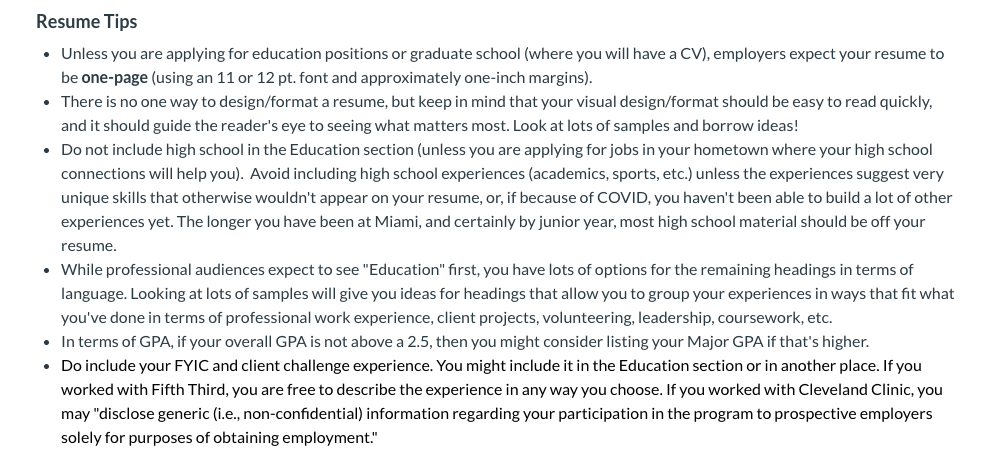Sticking your neck out
Planted 02020-09-01
On business and classes.
I’ve never been one for grades. If you know me, you can attest to that. I’ve never been angry about receiving a lower-than-perfect grade. However, I have often been angry over what constitutes the grade.
A business course at my University has an assignment to create a resume.
To help you prepare for career fairs and to prepare to create or update and improve your LinkedIn profile, please update your resume.
The assignment came with the following.

And directly underneath the tips was, emphasis mine:
A resume that is clearly formatted, includes relevant information, and fills the page will likely be eligible for a B. To earn an A, your resume must make a strong and unique impact in terms of design and content and make you “stand out” to your audience. There is no “one way” to do this, so look for ways to uniquely showcase both your personality and your experiences!
So, as one would expect after reading, I thought we were free to not follow some of the non-applicable resume tips such as “professional audiences expect to see ‘Education’ first”– that’s quite silly when you can showcase work experience and skills within your craft.
I didn’t even give a second thought to the resume tip of “Do include your FYIC and client challenge experience,” as my experience in the First-Year Integrated Core (FYIC) and client challenge was…
As such, I received a B minus on my resume with the following reasoning.
Your design decisions won’t impact the grade; what would, however, is lack of mentioning of the Miami-related experiences, e.g. FYIC, lack of FSB mentioning, and placement of the Education section.
Ah, silly me, I thought “resume tips” meant that I could take them with a grain of salt, and that “there is no ‘one way’ to do this, so look for ways to uniquely showcase both your personality and your experiences,” meant that I could focus on my experiences and craft.
But what that actually meant was there is a very singular way to do this:
- you must talk about Miami University,
- you must talk about the Farmer School of Business, and
- you must put the them above all else.
I had simply failed in my reference to the grandeur Miami University and the noble Farmer School of Business by heretically not placing them at the top of my resume.
This event nicely sums up my experience at University and its business school—since I refused to put their reference atop my resume, off with the points.
Business classes, in particular, appear centered around teaching a mentality of staying within the guardrails and not sticking your neck out.
And people—students and teachers alike—hate it when I don’t follow along. But I’ve decided something. I’m not here to follow the template.
I’m here to poke the box. To confront and seek confrontation, because that’s how things get better.
Is this place not supposed to be a unique area where we choose to be right over being effective?
One of the most important things a culture can develop is belonging cues. These cues are not built through the standard discipline instilled through school and bosses. They are built through an environment that lets people know they’re connected, they share a future, and they’re safe to speak.
What change are you trying to make?